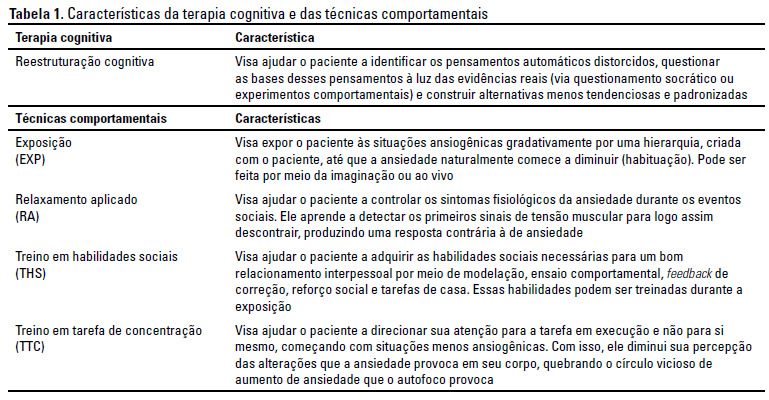BACKGROUND: Patients with social anxiety disorder (SAD) exhibit distinctive patterns of response to different types of cognitive and/or behavioral treatment. Therefore, it is imperative to assess the best techniques used for the treatment of this disorder. OBJECTIVE: The aim of this paper is to perform a systematic review of controlled studies that evaluated the efficacy of cognitive and/or behavioral techniques on the treatment of SAD. METHOD: A systematic analysis of randomized clinical trials indexed in the following databases was made: PubMed/MedLine, PsycINFO, Cochrane Controlled Trials Register, LILACS, ISI Web of Science, and related articles. RESULTS: No consensus on the efficacy of associating cognitive and behavioral therapies was found. Novel techniques (such as virtual reality, bycomputerhomework,and self therapy with therapeuticassistance) werefoundto be as effectiveasstandardcognitivebehavioral therapy (CBT). The association of CBT with the avoidance of safety behaviors, as well as with social skills training was associated with an additional advantage. As for behavioral therapy, focus training and exposure therapy were considered to be the most effective techniques. Further, individual treatment was more effective than group therapy, and weekly sessions were associated with better results than those occurring at least every other week. DISCUSSION: Both cognitive and behavioral (standard and innovative) therapies are effective for treating social phobia.
Social anxiety disorder; cognitive behavioral therapies; cognitive therapies; randomized controlled clinical trials; systematic review





